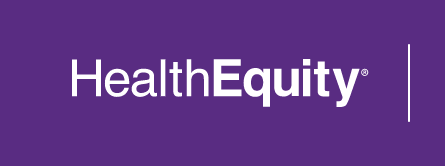On Wednesday, March 6, the Internal Revenue Service (IRS) released an alert reminding taxpayers and health spending plan administrators that certain personal expenses – specifically those related to nutrition and general wellness and health – are not considered medical expenses for purposes of tax deductions or reimbursement under a Health Flexible Spending Arrangement (Health FSA), Health Savings Account (HSA), Health Reimbursement Arrangement (HRA), or Medical Savings Accounts (MSAs).
Why did the IRS issue a caution about personal expenses?
This alert comes in response to concerns that some companies may be misrepresenting the circumstances in which certain food and wellness expenses are eligible for payment or reimbursement from Health FSAs, HSAs, HRAs, and MSAs.
IRS Commissioner Danny Wefel commented, “Legitimate medical expenses have an important place in the tax law that allows for reimbursements … but taxpayers should be careful to follow the rules amid some aggressive marketing that suggests personal expenditures on things like food for weight loss qualify for reimbursement when they don’t qualify as medical expenses.”
What do the regulations allow for payment or reimbursement of medical expenses?
By way of background, section 213 of the Internal Revenue Code (the “Code”) generally allows for payment or reimbursement of medical expenses – defined as expenses related to the costs of diagnosis, cure, mitigation, treatment, or prevention of disease, and for the purpose of affecting any part or function of the body – under a Health FSA, HSA, HRA, or MSA.
In addition, Code § 213 generally allows a deduction for medical expenses paid during a taxable year if certain requirements are met. However, if any amount is paid or reimbursed under a Health FSA, HSA, HRA, or MSA, a taxpayer cannot also deduct the amount as a medical expense on the taxpayer’s federal income tax return. Medical expenses must be primarily for the prevention or alleviation of physical or mental illness or disability. Expenses that are beneficial to general health are not included in this definition.1
When self-reported health information isn’t sufficient for payment or reimbursement
The IRS commented that certain companies incorrectly assert that letters from doctors, solely relying on self-reported health information, can sufficiently establish these non-medical expenses (e.g., gym memberships, dietary supplements) as medical expenses for tax purposes or for reimbursement under a health spending plan.
The alert provides an example scenario in which a diabetic is attempting to manage his blood sugar by opting for low-carbohydrate foods. He reaches out to a company that advertises claims he can use pre-tax contributions from his Health FSA to purchase healthy foods. This company offers to provide him with a “doctor’s note” for a fee, promising Health FSA reimbursement for these expenses. However, when he submits the claim to request reimbursement of these healthy food expenses along with this “doctor’s note,” the claim is denied. The denial is based on:
- Food purchases are not considered medical expenses absent a prescription from a medical practitioner to alleviate or treat a specific illness,
- The items are not part of his normal nutritional needs and are in addition to his normal diet, and
- The submission lacks a statement by a medical practitioner attesting to the particular facts and to the food or beverage prescribed.
What are the risks for plan sponsors if paying or reimbursing non-medical expenses?
If a health spending plan is found to be paying for – or reimbursing – non-medical expenses, it can be disqualified as a cafeteria plan. This can result in serious consequences for both the employees and the employer plan sponsors, including tax liabilities and penalties.
How can taxpayers and plan sponsors stay in compliance?
The IRS alert reinforces the importance of accurately documenting and substantiating medical expenses to avoid these hazards. Taxpayers and health plan spending account plan participants should keep detailed records – including receipts, invoices, and applicable diagnosis/treatment information from medical practitioners – to support any claims for medical expenses.
In addition, sponsors of health spending plans should ensure plan participants are duly educated about eligible medical expenses and are provided clear guidance on what expenses qualify for payment or reimbursement with pre-tax funds. You can also reference this list of expenses that do not qualify for reimbursement. And you can read our previous article on how to navigate IRS guidance on eligible medical expenses and wellness.
For more information about medical expenses related to nutrition, wellness, and general health, individuals can visit the IRS FAQ page.
HealthEquity does not provide legal, tax or financial advice.
The preceding general summary is intended to educate employers and plan sponsors on the potential effects of government guidance on employee benefit plans. This summary is not and should not be construed as legal or tax advice. As always, we strongly encourage employers and plan sponsors to consult competent legal or benefits counsel for all guidance on how the actions apply in their specific circumstances.
1See also https://www.irs.gov/pub/irs-pdf/p502.pdf, https://www.irs.gov/taxtopics/tc502, and 2023 Publication 969 (irs.gov).



